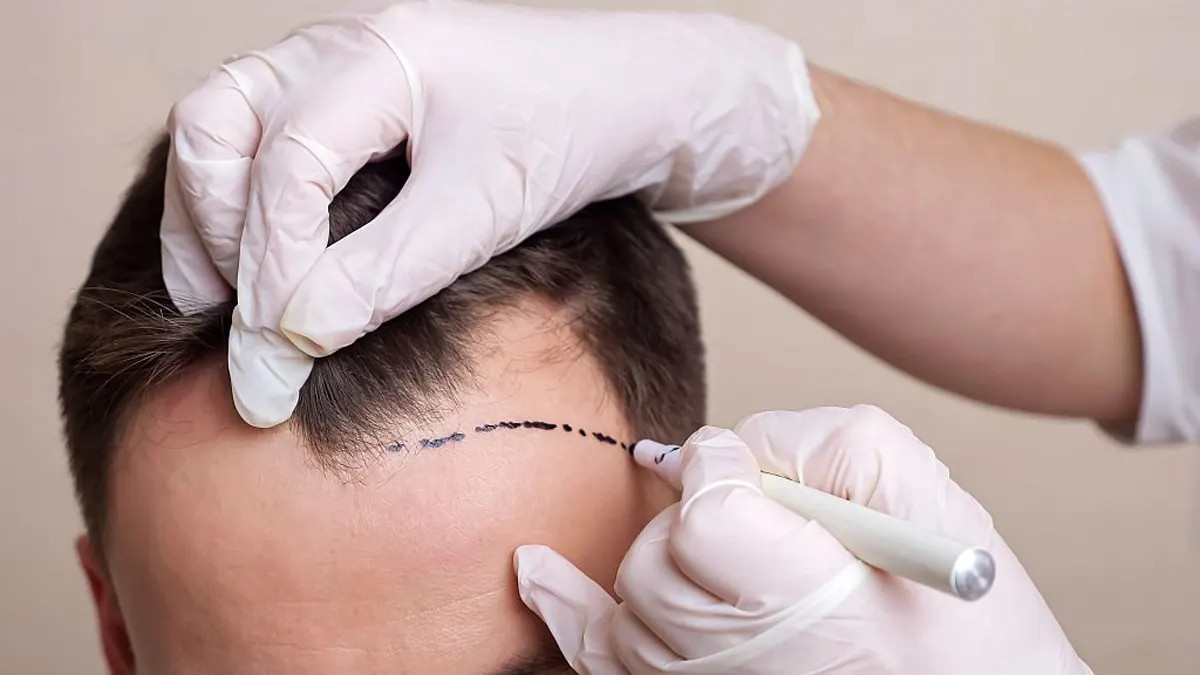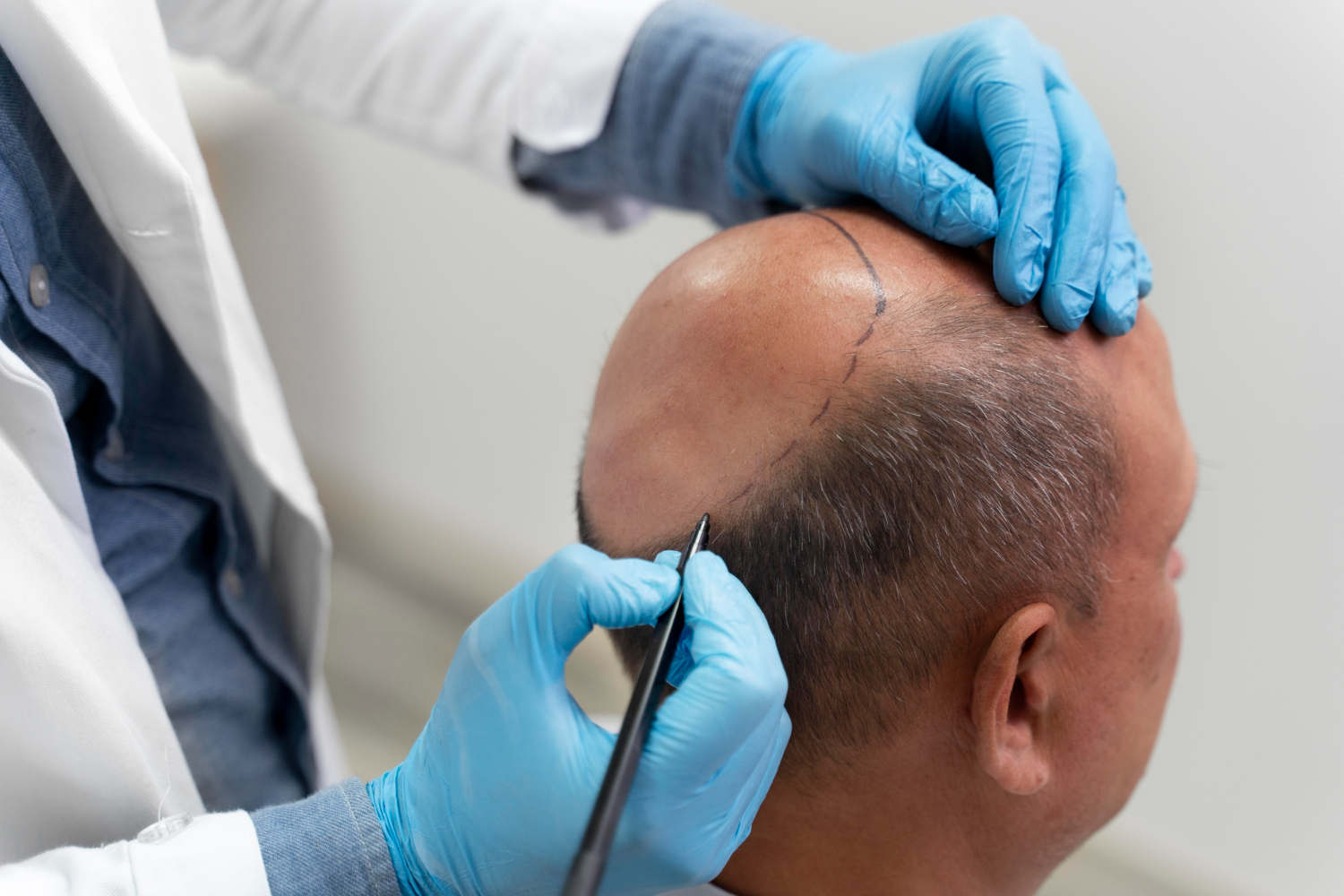Who Qualifies For A Hair Transplant?
Hair loss can be a frustrating and emotionally challenging experience, but advancements in medical technology have made hair transplants a viable solution for many seeking to restore their natural hair. If you've been considering Hair Transplant in Dubai, you might be wondering if you're a good candidate for the procedure. While hair transplants can work wonders for many, not everyone is an ideal candidate. There are a variety of factors that play a role in determining who qualifies for a hair transplant, from age and overall health to the extent of hair loss and hair type. This article will guide you through these factors, helping you understand whether a hair transplant is the right choice for you.

1. Age Considerations: Are You at the Right Stage?
Age is a significant factor in determining your suitability for a hair transplant. Most candidates are between the ages of 25 and 65. Younger individuals, especially those under 25, may not be ideal candidates because hair loss patterns may not be fully developed. A hair transplant can be less effective in such cases, as the progression of hair loss can continue, leading to uneven results later on. For those above 65, age can also impact the procedure, as skin elasticity and hair quality may not be optimal.
However, there's no hard rule, and a consultation with a specialist can provide better insight into your individual case. The key here is to ensure that hair loss has stabilized before proceeding with surgery.
2. The Extent of Hair Loss: How Much Hair Have You Lost?
The extent of hair loss is one of the most critical factors in determining if you qualify for a hair transplant. People experiencing early to moderate stages of male or female pattern baldness are typically the best candidates. If you have areas of thinning or bald patches but still have enough healthy hair remaining in other areas (usually at the back or sides of the head), you may be able to undergo a hair transplant with satisfying results.
If you've experienced severe hair loss or have completely bald areas, you may still qualify for the procedure, but the results may vary. More extensive hair loss could require multiple sessions or different techniques, and it's essential to discuss realistic outcomes during your consultation.
3. Hair Type: Does Your Hair Suit the Procedure?
The texture and thickness of your hair play a crucial role in the outcome of your transplant. Thick, straight hair tends to give the most natural-looking results as it covers the transplanted area more effectively. On the other hand, fine or curly hair may require a more meticulous technique to achieve a satisfactory look.
Additionally, the donor area—usually the back of the head—needs to have enough healthy hair follicles that can be transplanted to the thinning or balding areas. If you have thin or sparse hair in the donor area, you may face challenges with the procedure's effectiveness.
4. Overall Health: Are You in Good Physical Condition?
Your general health and medical history play a vital role in determining whether a hair transplant is the right choice for you. Candidates should be in good health and free from conditions that could interfere with the healing process, such as diabetes, blood disorders, or autoimmune diseases. A strong immune system is important for recovery, as the procedure involves the transplantation of hair follicles from one area of the scalp to another.
Certain lifestyle factors, such as smoking and excessive alcohol consumption, can also affect the healing process and the overall success of the transplant. Maintaining a healthy lifestyle can enhance the results and speed up recovery time.
5. Realistic Expectations: Are You Prepared for the Outcome?
One of the most crucial aspects of deciding to undergo a hair transplant is having realistic expectations about the results. A hair transplant can significantly improve the appearance of your hair, but it's important to understand that the procedure doesn't stop the natural aging process. You will continue to age, and hair loss may still occur in other areas over time.
Your transplant's outcome will also depend on the skill and technique used during the procedure, and the results can vary from person to person. Understanding what the procedure can and cannot achieve will ensure that you are prepared for the final result.

6. Patience and Long-Term Commitment
A Hair Transplant Dubai is not an instant fix—it's a long-term solution. The newly transplanted hair will fall out in the first few weeks, and then new growth will begin to emerge after several months. Full results typically take up to 12 months to show, and it's essential to be patient during this recovery period.
Moreover, a commitment to proper hair care and a healthy lifestyle post-surgery is important for ensuring long-lasting results. Follow the aftercare instructions provided by your specialist to avoid complications and maximize the benefits of the procedure.
Conclusion
A hair transplant can be a life-changing decision, but it's not right for everyone. Factors such as age, extent of hair loss, hair type, overall health, and realistic expectations must all be considered when determining if you're a good candidate for the procedure. If you're considering Hair Transplant in Dubai, the best course of action is to consult with an experienced professional who can assess your individual case and guide you through the decision-making process. Whether you want to restore your hairline or fill in thinning patches, the right candidate will see great benefits from the procedure and enjoy renewed confidence and a fuller head of hair.